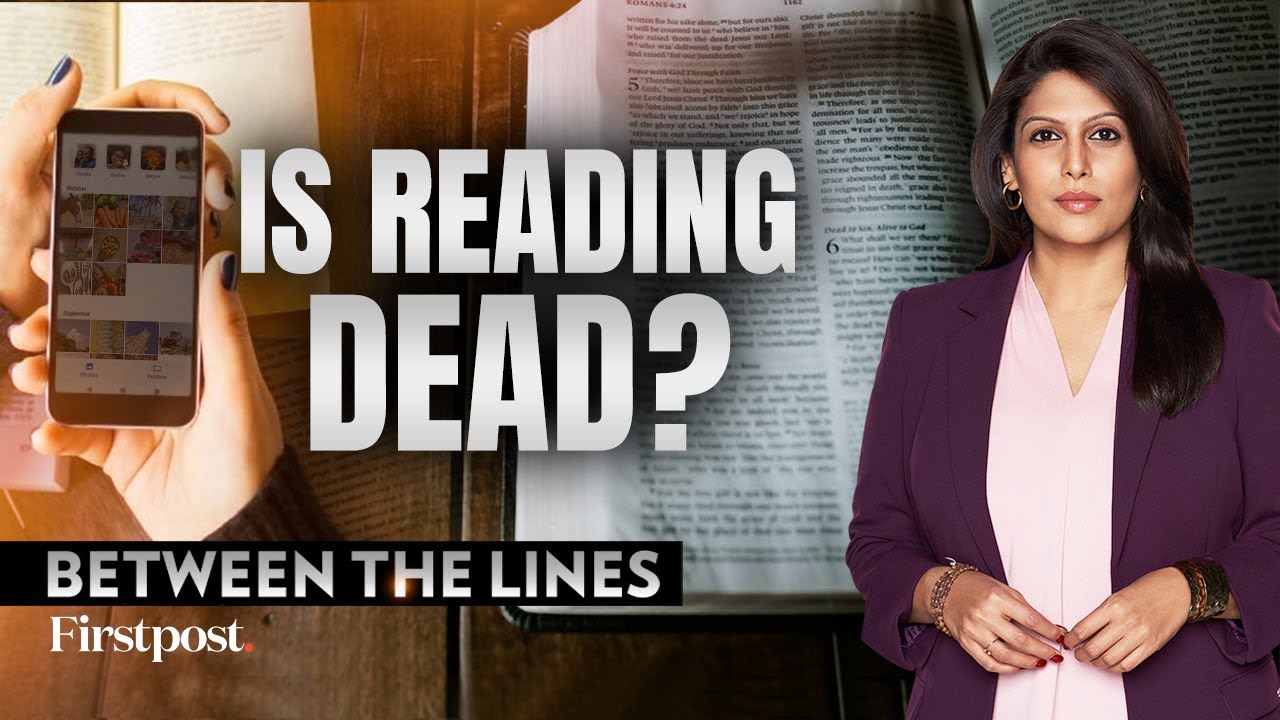Reading Changes your Brain, let me explain.
Summary
TLDRIn this video, the creator shares their journey to build a reading habit amidst the distractions of Netflix and social media. They delve into the neurological benefits of reading, such as increased temporal lobe activity linked to memory and lower dementia risk. The creator outlines three strategies: starting with small daily reads, using Kindle to archive and review highlights, and setting dedicated reading times. They also plan to hold themselves accountable by reviewing a book each month, encouraging viewers to subscribe for updates.
Takeaways
- 📚 The speaker is determined to build a reading habit despite distractions like Netflix.
- 🧠 Reading involves a complex process starting from visual recognition to language comprehension in the brain.
- 🔍 The 'letterbox' in the temporal lobe is crucial for recognizing letters and forming words.
- 💡 Reading can have neurological benefits, including increased left temporal lobe activity and potentially lower risks of dementia.
- 📈 Reading is linked to emotional regulation and may help in reducing stress and anxiety.
- 🗣️ Reading can improve verbal recall and the ability to retrieve words quickly.
- 📘 The speaker uses 'The Daily Stoic' on Kindle to start their day with a small dose of reading.
- 🔑 The strategy of reading a little in the morning tricks the brain into reading more later in the day.
- 🖼️ Kindle's highlighting feature helps in remembering important points from books, but summarizing in Notion was too cumbersome.
- 🔔 Readwise is a tool that sends daily email reminders of Kindle highlights, aiding in retaining information.
- 🛌 Establishing a bedtime reading routine, even if it's just a few pages, is part of the habit-building process.
- 📈 The speaker plans to use their channel for accountability by reviewing the best book they read each month.
Q & A
What is the primary goal of the video?
-The primary goal of the video is to share strategies for building a reading habit and sticking to it.
What does the speaker discuss about the brain's process when reading?
-The speaker discusses how the brain processes patterns and shapes from the page, recognizes letters and words in the temporal lobe, and determines their meaning and pronunciation in the frontal lobe and other areas.
How does the speaker describe the benefits of reading in terms of brain activity and health?
-The speaker mentions a study showing that reading 30 pages a night can increase left temporal lobe activity, which is linked to memory and lower risks of dementia. Reading is also associated with emotional regulation and verbal recall.
What is the speaker's strategy for tricking their brain into reading more?
-The speaker's strategy is to read a small dose of reading, like two pages of 'The Daily Stoic' in the morning, to trick their brain into thinking they've already read something and might as well read more.
How does the speaker use Kindle to enhance their reading experience?
-The speaker uses the Kindle app to read in the morning and highlights parts that resonate with them. They also use a website called Readwise to receive daily email reminders of their favorite principles from the books they've read.
What is the purpose of summarizing book highlights into a Notion page according to the speaker?
-The purpose is to create an archive of what has been learned from the books, but the speaker found this method too much extra work and didn't stick to it.
What alternative to summarizing into a Notion page did the speaker find more effective?
-The speaker found using Readwise more effective, as it sends them five Kindle highlights and reminds them of their favorite principles from the books they've read.
What is the speaker's final habit to implement in their reading routine?
-The speaker's final habit is to set reading times, specifically reading something before bed each night, even if it's just a few pages.
Why did the speaker choose not to read creative books on Kindle?
-The speaker chose not to read creative books on Kindle because they believe half the experience is lost due to the visual nature of such books, which is not well captured on a Kindle.
How does the speaker plan to hold themselves accountable for their reading habit?
-The speaker plans to hold themselves accountable by making a book review of the best book they've read each month and posting it on their channel.
Outlines

This section is available to paid users only. Please upgrade to access this part.
Upgrade NowMindmap

This section is available to paid users only. Please upgrade to access this part.
Upgrade NowKeywords

This section is available to paid users only. Please upgrade to access this part.
Upgrade NowHighlights

This section is available to paid users only. Please upgrade to access this part.
Upgrade NowTranscripts

This section is available to paid users only. Please upgrade to access this part.
Upgrade NowBrowse More Related Video

How to Make Books More Addictive Than Social Media

ЛУЧШИЙ НАВЫК, который ты можешь изучить в 20 лет

Como tornar a leitura um hábito diário | Pedro Pacífico | TEDxCampinas

tech I use to stay productive 2024

Aziz Muharror Husna_BACO_Lomba Video Konten Literasi Kabupaten Sarolangun

Why People No Longer Read Books | Between the Lines with Palki Sharma
5.0 / 5 (0 votes)